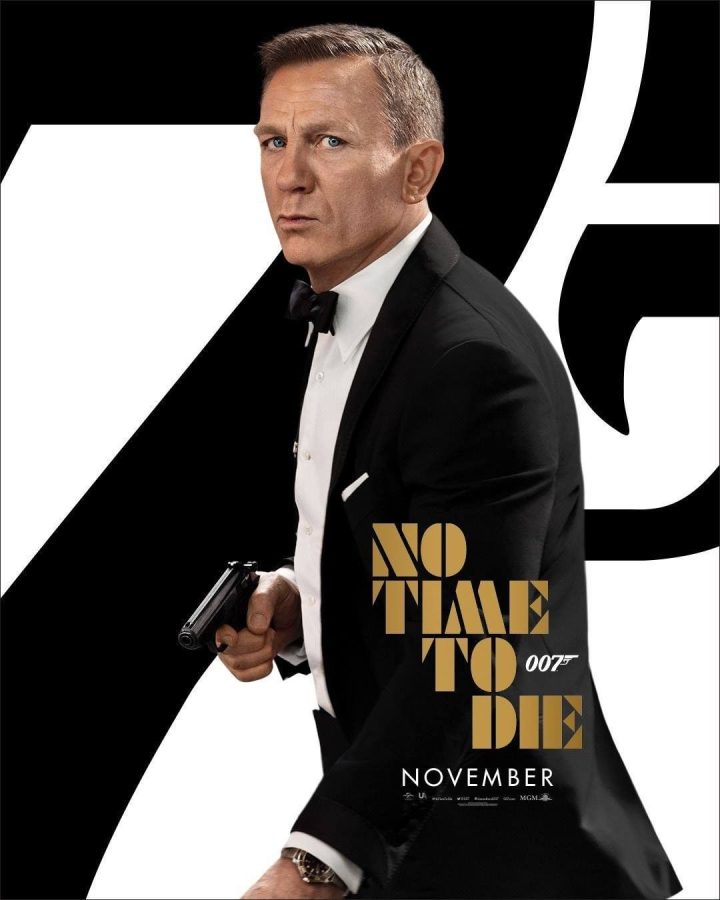“No Time to Die” is a different kind of Bond film. It deals with some heavier themes such as questioning where your loyalties lie. It is the fifth and final film in the Daniel Craig era of James Bond films, and it serves as a satisfying conclusion to the series.
Major Spoilers Below
I felt that the gadgets, cars, outfits, music and one-liners of the film were all incredible as always. Daniel Craig commands the screen and feels very comfortable in the role of a more experienced and retired Bond. I enjoyed the fact that he gained a new perspective on MI6 through his years of service. He becomes more critical of them and even works with the CIA at one point. The idea that MI6 isn’t always doing the right thing is a cool idea, and it’s interesting to see how Bond reacts to this.
My main complaint involves the introduction of the next 007 agent, played by Lashana Lynch. It felt a little bit forced and not thematically consistent. She is introduced early in the film and butts heads with Bond, which provides some funny scenes, but I think it was to the detriment of the film. When Bond returns to MI6, he is given the 007 designation again. Both Craig and Lynch are referred to as 007 throughout the film, which led to some comedic moments where they both answered when somebody asked for 007. However, it was a bit confusing and pulled the focus away from Craig. This was his last outing as the character, and it felt a bit off having somebody else with the 007 designation already.
Though the motivations and logic of the main villain, Lyutsifer Safin, make sense once you understand what is going on, it is a bit difficult to keep track of all the different factions. SPECTRE—the Special Executive for Counterintelligence, Terrorism, Revenge and Extortion from the previous film—MI6, the CIA, Safin’s forces and the British Royal Navy are all players in this movie with their own motivations and goals.
Despite the film’s two hour and 43-minute runtime, it can be difficult to keep track of who is with who. Bond works with the CIA early on but then goes back to MI6. Logan Ash is originally thought to be working with the CIA, but later is revealed to be working with Safin. SPECTRE and Safin are both villains, but SPECTRE is killed off by Safin as revenge for killing his parents. He does this using Heracles, a weapon made of undetectable nanobots that can be transmitted between people through the slightest touch. Heracles can also be programmed to target specific people using DNA. Though it’s an interesting concept that provides a unique and terrifying threat to our heroes, Heracles is also confusing because it was developed by MI6 in secret. It was originally supposed to be used to target terrorists, but then it was stolen by Orbachev, a henchman of Safin. He then gave it to SPECTRE and told them it was programmed to kill Bond, but it was actually programmed to kill all of SPECTRE. This was definitely a confusing turn of events to follow. I believe it could’ve been simplified by having Safin develop Heracles since he is portrayed as an evil genius.
All that being said, I think killing Bond at the end was the proper decision. His final moments are emotional and satisfying. It doesn’t leave any room for further sequels which, in my opinion, is a good thing. Having a definitive beginning and ending is not something often seen in the age of cinematic universes and endless sequels/prequels that bring characters back from the dead. The end of this film truly feels like the end of an era.

